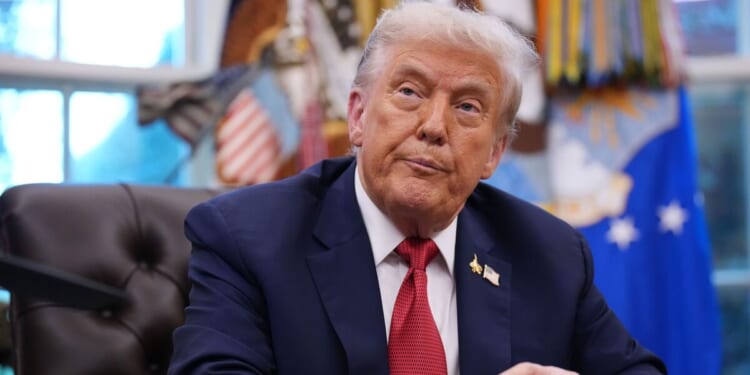Donald Trump should take an Alzheimer’s test after exhibiting “odd” behaviour, an expert has suggested. Dr Narinder Kapur, a consultant neuropsychologist and visiting professor of neuropsychology at University College London, said: “Obviously Trump’s behaviour in the last six months, some of his behaviour, has been quite odd and strange.” He highlighted the president’s desire for Canada to become the 51st US state, and his wish to take over Greenland. The specialist would not go as far as to diagnose Trump with dementia, mentioning psychologist Dr. John Gartner’s observation that there has been a “major deterioration” in Trump’s language skills, motor skills, and impulse control.
But he added: “Certainly if one was thinking about what are the various possible dementias he’s got, certainly frontotemporal dementia is one of them, because some of his behaviour over the last six months has been really quite bizarre.” Dr Kapur also mentioned the president’s recent linking of autism and paracetamol. “Even though he’s probably been led a bit by [Robert F.] Kennedy [Jnr.] on that, still for Trump to say the things he did was really quite odd and bizarre, really.
“And so I think if he did turn out to have a neurodegenerative dementia, it could turn out to be what’s called frontotemporal dementia rather than Alzeimer’s Disease.
“But, again, that would be a question decided once he’d had the tests.”
Other statements made by Mr Trump that caught Dr Kapur’s eye have included the president saying that he was the first American head of state to be welcomed at Windsor Castle, which was factually incorrect, or a confabulation, the expert suggested.
Ronald Reagan, George W. Bush, Barack Obama and Joe Biden all visited the castle during their terms.
In addition, Dr Kapur highlighted that the US leader said he was going to Russia to meet with Putin for peace talks earlier this month.
The summit took place in Alaska.
But there is also the possibility that Trump is saying certain things for political reasons, the neurological professor conceded, such as his suggestion that he did not know Peter Mandelson after Keir Starmer‘s former ambassador to the US was sacked.
“There’s always that issue as to what extent when he makes these errors is this a real error,” Dr Kapur said, “or is he trying to get out of it in some way?”
He pointed towards the confusion between Alaska and Russia as a more concerning mistake.
The expert said: “There are now blood tests for Alzheimer’s Disease, and the next time he has his annual medical examination, Donald Trump should have that blood test.”
In April, White House doctor Captain Sean Barbabella said Trump was “in excellent health, exhibiting robust cardiac, pulmonary, neurological, and general physical function”.
Dr Kapur stated that this was based on a “short physical examination” and a Montreal Cognitive Assessment – consisting of 30 questions and designed to take 10 minutes.
The specialist said he never uses the test, and “nobody else uses it”.
“That will never give you a picture for cognitive assessment,” he added.
“There are five areas of cognitive function, the memory, concentration, langauge, functional visiospatial and executive function.
“And those five areas we have to examine in detail.”
Getting a good idea of the function of an individual’s brain takes three or four hours, Dr Kapur explained.
This means the president could “still have significant cognitive impairment”.
The expert thinks early signs of decline could be going unnoticed, with global consequences, and he is urging governments to bring in mandatory, regular testing for politicians over 70 “before it’s too late”.
Dementia symptoms
The NHS says common early symptoms may appear some time before a diagnosis of dementia.
These include:
- memory loss
- difficulty concentrating
- finding it hard to carry out familiar daily tasks, such as getting confused over the correct change when shopping
- struggling to follow a conversation or find the right word
- being confused about time and place
- mood changes

















